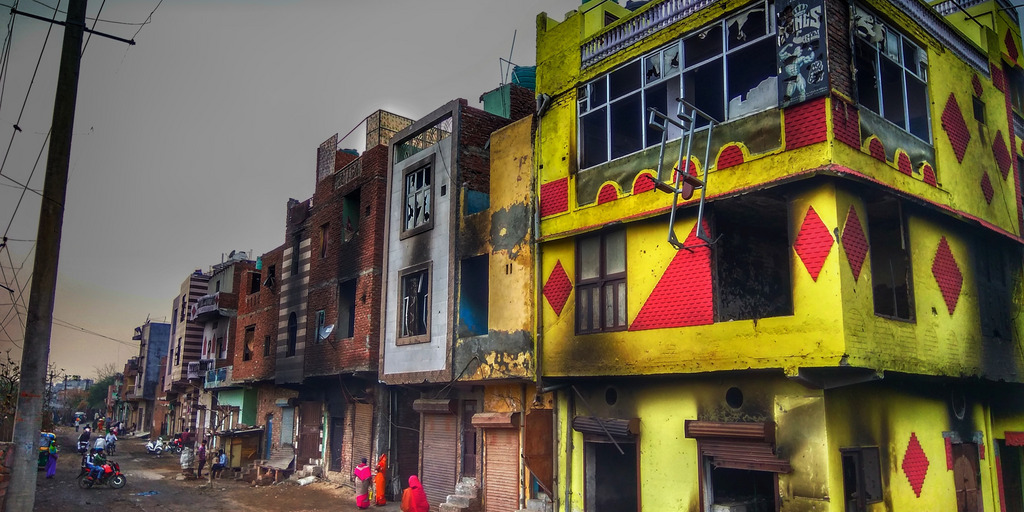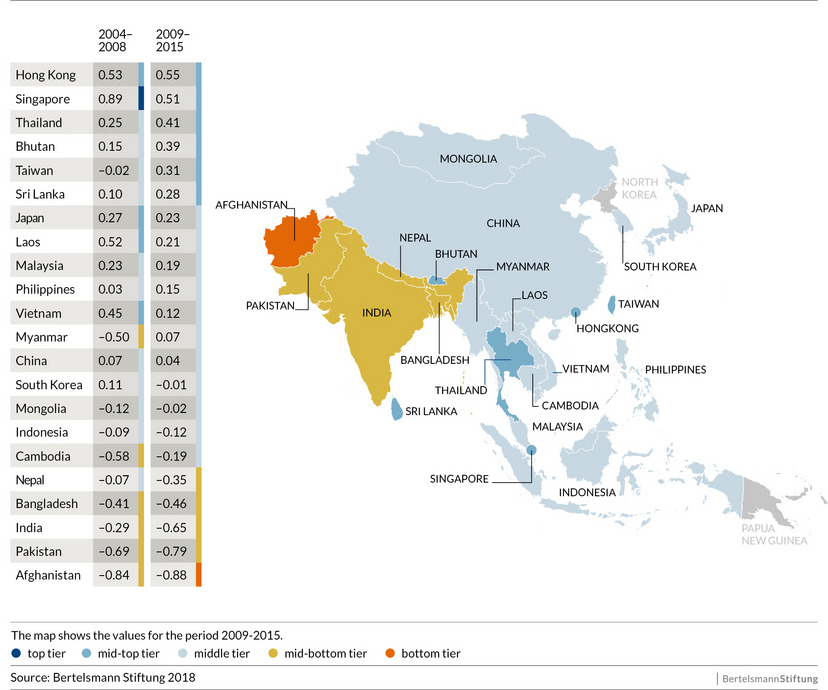In India, more than forty people have been killed in recent violent clashes between Hindus and Muslims in New Delhi. The riots at the end of February, which overshadowed the state visit of US President Donald Trump, were triggered by rallies for and against the controversial reform of India's citizenship law. The new law allows members of religious minorities from Bangladesh, Pakistan and Afghanistan, who came into the country without valid papers before 2015, a simplified naturalization, the government argues. However, Muslims are excluded from this new regulation and therefore feel discriminated against. Therefore, protests have repeatedly occurred, since the adoption of the law in December 2019. The recent riots have been the most serious so far and mark a new escalation stage in the conflict between Hindus and Muslims in India.
Critics of the government of Prime Minister Narendra Modi and his Bharatiya Janata Party (BJP) see the reform of the Citizenship Law as part of a Hindu nationalist agenda (Hindutva). The aim is to transform India into a Hindu state in which the Hindu majority has priority over the numerous minorities. The Hindu nationalist efforts are directed primarily against the more than 170 million Indian Muslims, the country's largest religious minority, accounting for 14.2 percent of the population. The fierceness of the protests against the new citizenship law and the associated creation of a nationwide national citizenship register results from the fear that an unknown number of people living in India may no longer be able to claim Indian citizenship because they lack the necessary documents, such as official birth certificates or family registers. This would particularly affect members of the lower social classes in rural areas, including many Muslims.
The escalating conflict between people of the Hindu and Muslim faiths endangers the already weak cohesion of Indian society. India is one of the most ethnically, culturally and religiously diverse countries in the world. More than a hundred different languages are spoken in this country of 1.3 billion people, many of which have their own script. Besides Hindus and Muslims, Sikhs, Christians, Buddhists, Jains and members of many other religions live in India. Due to the officially abolished, but still effective caste system, the country is socially highly fragmented.
In order to strengthen cohesion, India pursued a "policy of accommodation" for decades. Since independence, religious and cultural minorities have been granted far-reaching special rights and particularly disadvantaged groups have often been promoted through targeted measures or specific institutions. A study by the Bertelsmann Stiftung has shown how this has helped to find compromises between the claims of minorities and those of the majority society. This policy of accommodation, which under the first Prime Minister Jawaharlal Nehru became the state idea of an independent and secular India, has played a major role in holding the huge and heterogeneous country together, according to the authors of the study, Peter Ronald deSouza, Hilal Ahmed and Mohd. Sanjeer Alam of the Centre for the Study of Developing Societies (CSDS) in New Delhi.
The current Hindu nationalist course has broken with this policy and is putting the cohesion of Indian society at risk. In any case, this cohesion is very weak, as a comparative study by the Bertelsmann Stiftung on social cohesion in 22 countries in South, Southeast and East Asia has shown. According to the results of this study, India is among the countries with the weakest social cohesion in all of Asia. In particular, the social relationships and networks between people are not strong and not very resilient. In addition, the acceptance of people with different values and lifestyles as equal members of society is also weak. And finally, trust in fellow human beings is also lower in India than in many other Asian countries. The reasons for this are manifold. Among the most important are the extreme poverty and high social inequality, but also the discrimination against women, which is still widespread in India.





